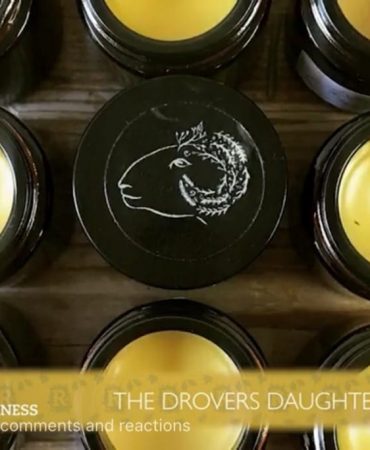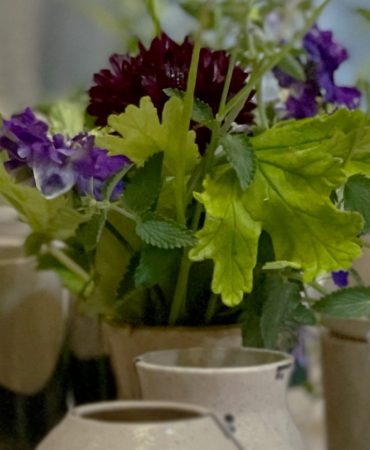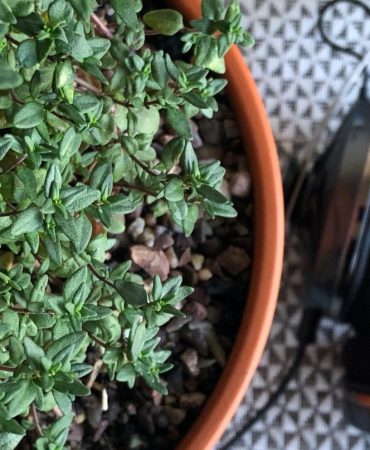Currently Empty: £0.00
A Note On Hilda: Hilda gets reviewed in Open Up Chorlton magazine
Written by Ghislaine Howard, citing Katherine Watson
“I have long had a penchant for scouring charity shops for old gardening books, of which there are many, reflecting the eclectic dedication we Brits have for all things garden-related” was Katherine Watson’s opening remark in a Garden Notes article published in the June – July 2021 publication of Open Up Chorlton. Drawing on two of our best national characteristics: charity-shoppers and gardeners.
Watson, a garden designer and horticulturalist, went on to write about one the Society’s favourite Brits, our Hilda and had only good things to say. “…Mrs. C.E.Leyel (Hilda to her friends); a remarkable woman by all accounts who set up her own chain of herbal shops – Culpeppers – in and around London, sparking a renewed interest in natural remedies.” And indeed she did, it was in 1927 that Hilda opened her first Culpeper Shop in Baker Street, London. A year before women had the write to vote, and during a time when only a third of women worked outside of the home, and when they did it was usually in low-paid ‘womens’ jobs. Hilda’s stores were however, a resounding success, and she caused so much renewed interest that she managed to expand to having several stores all across Britain.
A socialite and suffragist, she successfully lobbied the government when it threatened to ban the use of many herbal medicines in 1941, and as Watson mentions she “joined Sir Albert Howard in his campaign for compost versus synthetic fertilisers.” Hilda wrote The Magic of Herbs (1926), Picnics for Motorists (1936), Herbal Delights (1937), Compassionate Herbs (1946), Hearts-Ease (1949), Green Medicine (1952), and Cinquefoil (1957) as well as others. Most notably, she collaborated on Mrs M. Grieve’s A Modern Herval (vols 1 and 2).
“The history of the use of herbs […] is fascinating (and a bit disturbing in places) – as Hilda states in her introduction [to Herbal Delights, 1937] that herbs are the oldest form of medicine there is, with the word drug deriving from an Anglo-Saxon word ‘Dragon’ meaning to dry (herbs).” Right she was, and it was out of this kind of thinking and her 1941 lobby of the government, that she set up The Society of Herbalists, a non-for-profit organisation which allowed people easy access to herbs. It was this organisation which developed into The Herb Society UK, with the name changing in 1977.
Hilda was a force of nature, with a compassionate heart and a well-trained mind. She wrote once that, “…it’s rather comforting to know that our gardens can produce plants that can soothe and comfort as well as look and smell nice”. A sentiment that will surely ring true forever.
To read the full article, online, visit: https://openupmagazines.co.uk/chorlton/
Katherine Watson is the founder of Fat Grass Garden Design, whose website you can visit here or who’s instagram page you can like here.




